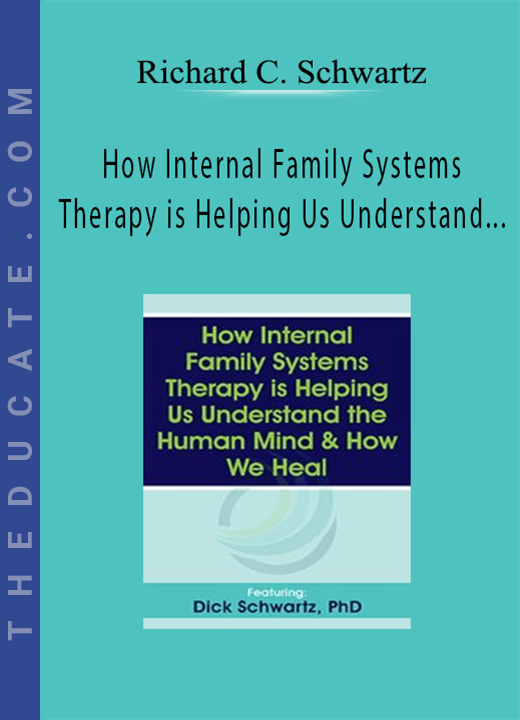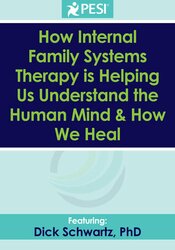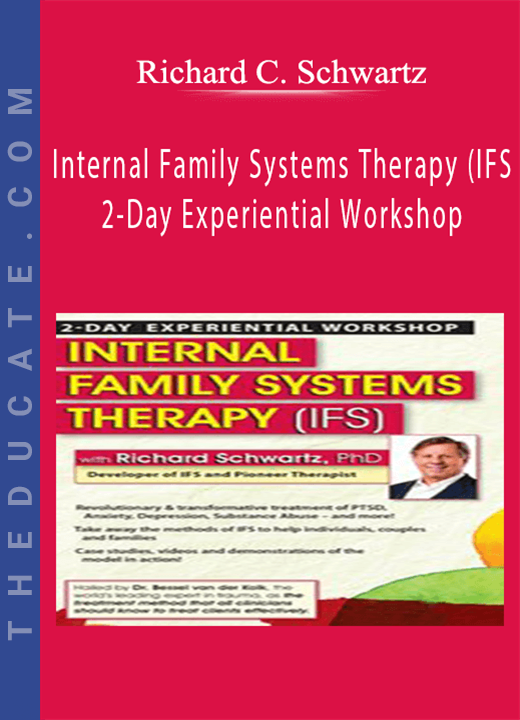Description
- Faculty:
- Richard C. Schwartz
- Duration:
- 1 Hour 15 Minutes
- Format:
- Audio and Video
- Copyright:
- Dec 03, 2020
- The Internal Family Systems (IFS) model in the context of psychotherapy
- Recent developments in the Internal Family Systems model
- How IFS helps understand the human mind from a neuroscientific perspective
Richard C. Schwartz – How Internal Family Systems Therapy is Helping Us Understand the Human Mind & How We Heal
Description
IFS not only offers innovative techniques for exploring and transforming the mind, it also represents a different, empowering paradigm for understanding human nature that has implications for and is being used in many areas of endeavor outside of psychotherapy.
Handouts
| Transcript (190.9 KB) | 61 Pages | Available after Purchase |
Outline
Faculty

Richard C. Schwartz, Ph.D. Related seminars and products: 23
Owner
The Center for Self Leadership
Richard Schwartz, Ph.D., earned his Ph.D. in marriage and family therapy from Purdue University, after which he began a long association with the Institute for Juvenile Research at the University of Illinois at Chicago, and more recently at The Family Institute at Northwestern University, attaining the status of associate professor at both institutions. He is co-author, with Michael Nichols, of Family Therapy: Concepts and Methods, the most widely used family therapy text in the United States.
Dr. Schwartz developed Internal Family Systems in response to clients’ descriptions of experiencing various parts – many extreme – within themselves. He noticed that when these parts felt safe and had their concerns addressed, they were less disruptive and would accede to the wise leadership of what Dr. Schwartz came to call the “Self.” In developing IFS, he recognized that, as in systemic family theory, parts take on characteristic roles that help define the inner world of the clients. The coordinating Self, which embodies qualities of confidence, openness, and compassion, acts as a center around which the various parts constellate. Because IFS locates the source of healing within the client, the therapist is freed to focus on guiding the client’s access to his or her true Self and supporting the client in harnessing its wisdom. This approach makes IFS a non-pathologizing, hopeful framework within which to practice psychotherapy. It provides an alternative understanding of psychic functioning and healing that allows for innovative techniques in relieving clients symptoms and suffering.
In 2000, Richard Schwartz founded The Center for Self Leadership in Oak Park, Illinois. Dr. Schwartz is a featured speaker for many national psychotherapy organizations and a fellow of the American Association for Marriage and Family Therapy, and he serves on the editorial boards of four professional journals. He has published four books and over 50 articles about IFS. His books include Internal Family Systems Skills Training Manual (with Frank Anderson, M.D. and Martha Sweezy, Ph.D) (PESI, 2017), Internal Family Systems Therapy (Guilford Press, 1997), Introduction to the Internal Family Systems Model (Tarcher, 2001), and The Mosaic Mind (with Regina Goulding) (Trailheads, 2003), as well as Metaframeworks (with Doug Breunlin and Betty Karrer) (Jossey-Bass, 1997). Dr. Schwartz lives and practices in Brookline, MA and is on the faculty of the Department of Psychiatry, Harvard School of Medicine.
Speaker Disclosures:
Financial: Richard Schwartz is the Founder of The Center for Self Leadership. He receives a speaking honorarium from PESI, Inc.
Non-financial: Richard Schwartz is a Fellow and member of the American Association for Marital and Family Therapy.








11 reviews for Richard C. Schwartz – How Internal Family Systems Therapy is Helping Us Understand the Human Mind & How We Heal
There are no reviews yet.